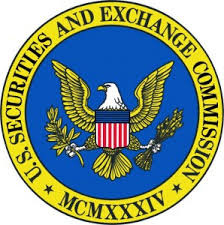Trust is the key ingredient in making any decision to invest, and I am not in a position to tell anyone who they should trust or what to look for in a good investment. I am, however, in a position to share some red flags that have been published by the Securities and Exchange Commission (“SEC”) (think of it as the IRS for securities) when it comes to spotting fraud:
1) If it sounds too good to be true, it probably is. Take the time to compare promised yields with current returns on well-known stock indexes. Any investment opportunity that claims you’ll receive substantially more could carry a much higher risk – and that means you have a better chance of losing your money. Be careful of claims that an investment will make “incredible gains” or has “huge upside and almost no risk!” Claims like these are typically hallmarks of extreme risk or outright fraud.
2) “Guaranteed returns” aren’t. Every investment carries some degree of risk, which is reflected in the rate of return you can expect to receive. Anyone telling you your money is perfectly safe and absolutely cannot or will not be lost is selling you a bill of goods. High returns entail high risks, possibly including a total loss on the investments. Most fraudsters spend a lot of time trying to convince investors that extremely high returns are “guaranteed” or “can’t miss.” There is no such investment.
3) Beware the “halo” effect. It’s easy to be blinded by a “halo” effect when a con artist comes across as likeable or trustworthy. Credibility can be faked. Check out actual qualifications.
4) “Everyone is buying it.” Watch out for pitches that stress how “all your (neighbors, friends, co-workers, fellow church members, etc.) are investing in this, so you should, too.” If a promoter can’t seem to stop telling you how many others have “bought-in,” this could be a red flag. You shouldn’t feel like you’re stuck in that “very special episode” of Full House where DJ’s date to the 8th Grade dance tries to get her to drink beer. “Everybody else was doing it” is not a sound investment strategy.
5) Look out for the “limited time offer.” Your meeting with the investment promoter should not remind you of the last time you were at a car dealership or at your front door dealing with a salesperson. Fraudsters will do their best to convince you that this is a once-in-a-lifetime offer and it will be gone tomorrow. Resist the pressure to invest quickly and take the time you need to investigate before sending money.
6) There’s no such thing as a free lunch. Scammers often try to lure investors through free investment seminars, figuring if they do a small favor for you, such as supplying a free lunch, you will do a big favor for them and invest in their product. There is never a reason to make a quick decision on an investment. If you attend a free lunch, take the material home and research both the investment and the individual selling it before you invest.
My last piece of advice? Don’t make a decision based on emotion. This is a not a time to throw caution to the wind and ‘just go with your gut.” Talk to a securities attorney to see what kind of legitimate offering this should be, who would be eligible to invest, and where it should be registered. Research the individuals involved. Use the resources available from the SEC at sites like https://www.investor.gov/ and various state securities divisions at sites like https://securities.utah.gov/investors/index.html. Doing so will help you avoid ending up a part of a future cautionary fraud statistic.
